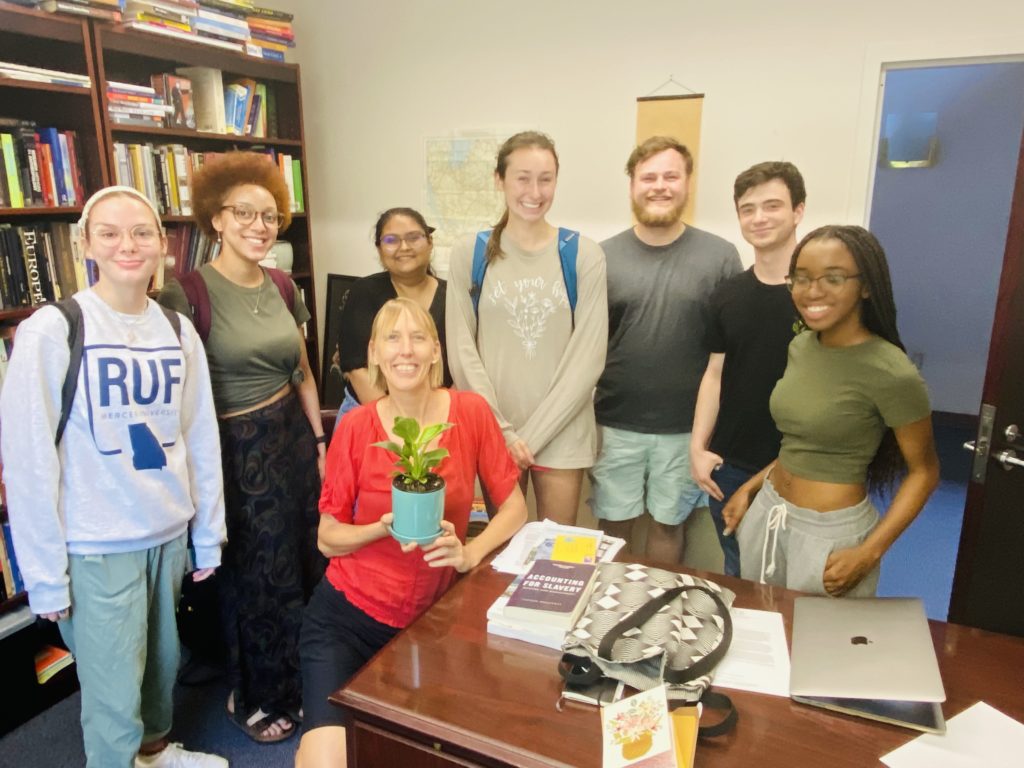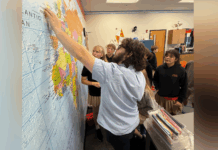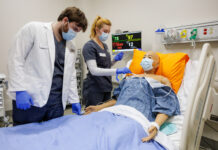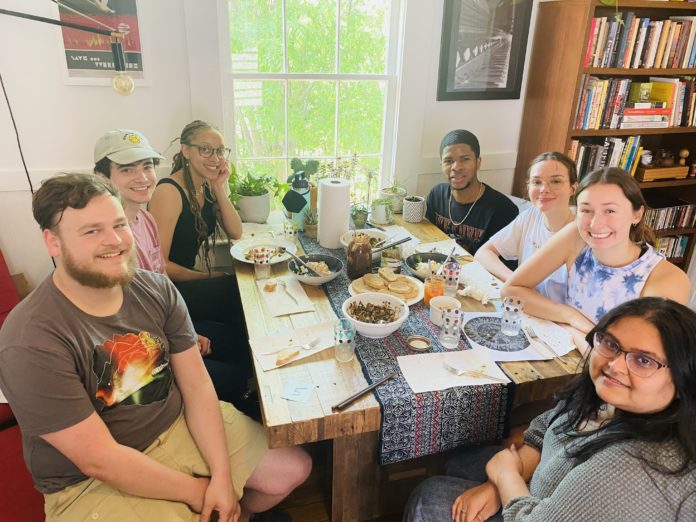
People experience the world through all their senses, and Dr. Natalie Bourdon helped her students understand that through unique sensory experiences this spring.
ANT 350: Cultural Anthropology, a required course for anthropology majors and minors at Mercer, acquaints students with the methods and theories that are essential to the study of culture and society. Ten students from a variety of backgrounds and years were enrolled in the most recent course, said Dr. Bourdon, associate professor of anthropology and women’s and gender studies.
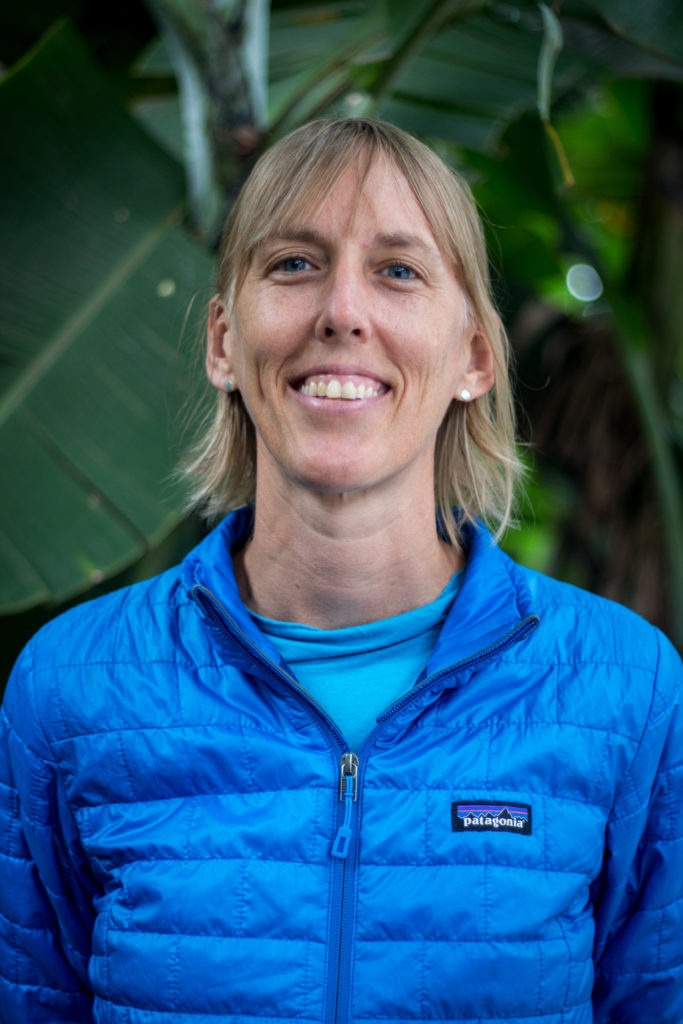
Through the reading and discussion of ethnographies, students explored themes of belief, violence, consumption, work, class, identity, gender roles and language. They also organized an exhibit housed at Tarver Library for three weeks called “Mercerians speak about race and racism,” which showcased narratives by students in Dr. Bourdon’s fall Introduction to Anthropology course.
In addition to books about homelessness and police violence in Chicago, the class also read “The Mushroom at the End of the World: On the Possibility of Life in Capitalist Ruins” by Anna Lowenhaupt Tsing and participated in a sensory workshop related to it.
“It’s just a really eclectic and interestingly written anthropological book on matsutake mushrooms and how they circulate the global economy,” Dr. Boudon said. “The book is a lot about immigration, capitalism and how we navigate and find freedom in these little pockets of capitalist economics.”
Dr. Bourdon invited students to her home for a lab where they described, sampled and learned about five different types of mushrooms. She roasted the mushrooms with salt and olive oil and also prepared a gourmet mushroom dish with vegan ricotta cheese. The students experienced a mushroom’s full life journey, from the ground to the table.
Dr. Bourdon does a lot of sensory anthropology these days, including through research on yoga and empowerment in the United States and Kenya. She has also taught trauma-informed yoga during two Mercer On Mission trips to Tanzania. Through the workshop at her home, she was able to provide a sensory experience that would broaden her students’ understanding of cultural anthropology.
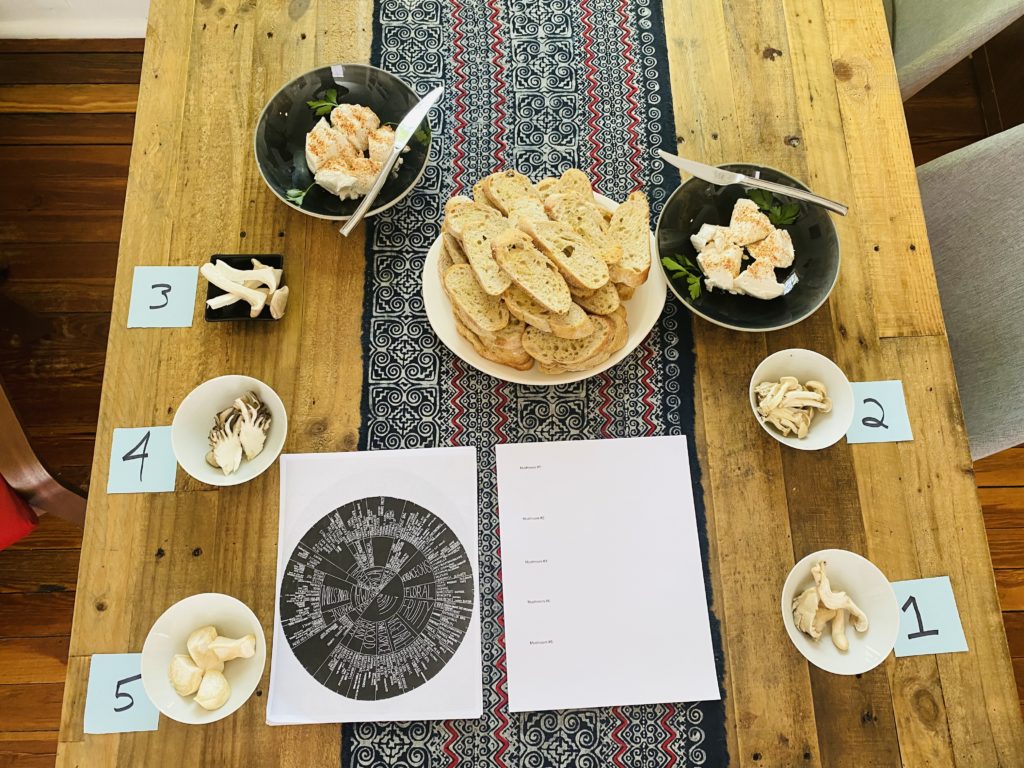
Rising sophomore Divine Madubike, an international affairs and finance double-major and an anthropology minor, said the sensory lab allowed him to get to know the material through a different lens. It required him to use all of his senses, and that provided additional context to learn about history, cultural ties and societal importance. For Madubike, going to a professor’s home was a new experience that created a more relaxed and personable environment.
“It was a different way to connect with students in a more informal environment,” Dr. Bourdon said. “Sharing food is a very universally human experience, so to do that with my students was a great way to break down barriers. I think that was very valuable.”
Tsing’s book also provided inspiration for Dr. Bourdon to incorporate another nontraditional activity at the end of the semester: a group oral final.
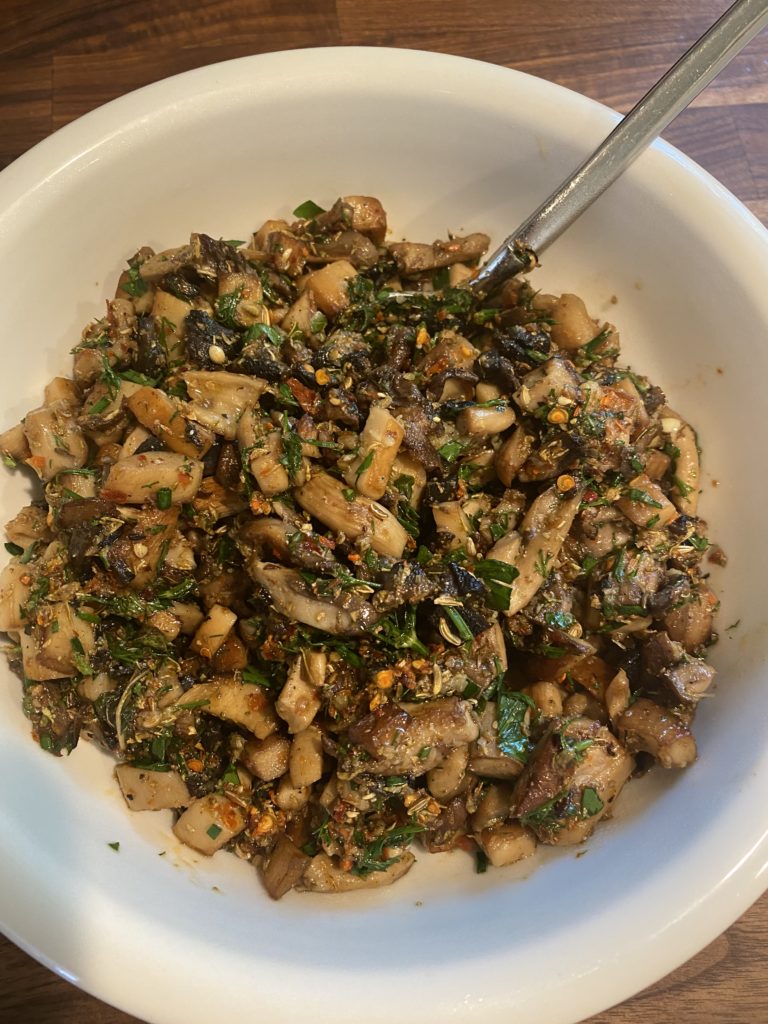
“(Tsing) says that our encounters with others and with differences actually benefit us in enormous ways,” Dr. Bourdon said. “The students really latched onto that. I could tell the students were learning from one another and challenging one another.”
Dr. Bourdon gave the students a list of potential test questions in advance, and they spent time on their own studying and practicing as a group. On the day of the exam, Dr. Bourdon called on one student to answer the question, but he or she could get assistance from other students if needed.
“The exam was fantastic. It was exactly the type of learning I wanted students to have in the classroom. It was like they were having a conversation,” Dr. Bourdon said.
Jada Moss, a rising senior double-majoring in global health studies and anthropology, said the course as a whole was a great foundation for how she should look at the world and its differences in her future studies and career. Separate from the course, she has been doing anthropological research with Dr. Bourdon on the parallels between Black Pentecostalism and Hoodoo, a body of spiritual practices and traditions especially among African Americans in the southern United States.
“My favorite thing about anthropology as a field is how it cleans the lenses of your eyes so that you can clearly see the landscapes of the world we live in,” Moss said. “Next, it adjusts the lenses, so you can zoom in on the significance of your own role and the role of others in the world.”
Madubike said he’ll apply what he learned in this course to his upcoming international affairs and finance classes and use it as a reference in his life because many of the concepts are universal in society.
“Cultural anthropology is something that can be applied to every major and every part of us as human beings,” he said. “Dr. Bourdon has truly broadened my worldview and been a beacon in my life.”
Currently, Mercer offers an anthropology minor as well as an individualized major, through which faculty work with students to create an academic path that meets their interests. Dr. Bourdon said the goal is to eventually expand the program to create a standard major in anthropology.
